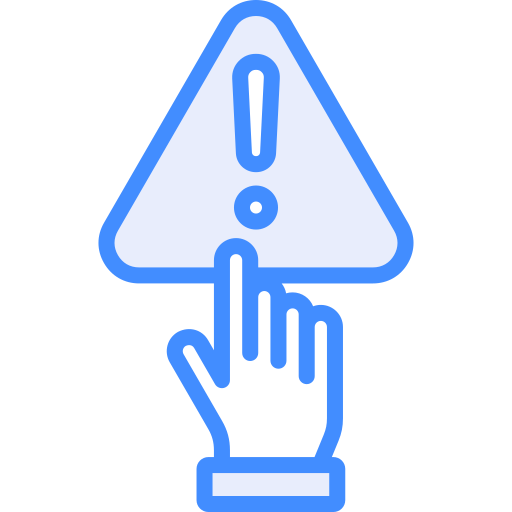Payday Lenders in Georgia
Payday Loan Laws

Loan Terms and Conditions
prohibited
Whenever you need emergency financing, you can get loans online from a legit lending companies. Check your rates and terms before applying for cash advance online.
History of Georgia Payday Loans
How to file a complaint
- ADDRESS
- Georgia Department of Banking and Finance, 2990 Brandywine Road, Suite 200, Atlanta, Georgia 30341-5565
- 770-986-1633
- Website
Georgia Loan Debt Relief
How to Get out of Loan Debt?
Types of Quick Loans in Georgia
Alternatives to Payday Loans in Georgia
Personal Loans
Georgia residents have access to personal loans, offering unsecured borrowing options without the need for collateral. The terms and rates of personal loans vary among lenders, considering factors such as credit history and income. While some lenders may have specific credit score requirements or minimum income thresholds, others offer more flexibility. In Georgia, the Department of Banking and Finance regulates the personal loan industry, ensuring compliance with state regulations and providing consumer protection.
Construction Loans
Georgia offers various construction loan options tailored to support the construction of new homes or the renovation of existing properties. Lenders in Georgia consider factors such as the borrower's creditworthiness, construction plans, and projected timeline to determine loan eligibility and terms. These loans provide the flexibility to draw funds as needed during the construction process, empowering Georgia residents to bring their visions to life. With different interest rates and repayment options available, construction loans in Georgia present an opportunity for borrowers to embark on their construction projects with confidence.
Home Equity Loans
Home equity loans are a popular choice among Georgia homeowners seeking funds for home improvements or other expenses, such as education costs. They tend to have fixed interest rates and can range anywhere from five to thirty years, depending on the borrower's credit history and the amount of equity built in their home. Usually, a home equity loan places the borrower's property at risk, as lenders have the option to initiate foreclosure proceedings in case of loan default. Georgia residents considering home equity loans should carefully evaluate their financial circumstances and consult with lenders to make informed decisions.
Bad Credit Loans in Georgia
Georgia residents with low credit scores can explore bad credit loan options in Georgia to obtain funding when traditional loan avenues may not be accessible. These loans serve as a means for individuals to rebuild their credit and regain financial stability. However, it is important to note that bad credit loans typically come with higher interest rates compared to traditional loans. Georgia borrowers should carefully review the terms and rates offered by different lenders, ensuring they can comfortably manage loan payments. Making timely loan payments is crucial for credit score improvement.
Georgia Small Business Loans
Small business loan options in Georgia:
- SBA loans: The SBA offers a variety of loan programs, including 7(a) loans, 504 loans, and microloans, to help small businesses access funding for things like, such as working capital, equipment purchases, and real estate investments.
- Georgia Department of Economic Development (GDEcD) Loans: The GDEcD offers several loan programs to promote economic development and support small businesses in Georgia. These programs include the Georgia Business Loan Program, the Rural Zone Loan Program, and the Georgia Tourism Product Development Funding.
- Georgia Access to Capital for Entrepreneurs (ACE) Loans: ACE is a Georgia-based nonprofit organization that offers small business loans, training, and mentoring programs to entrepreneurs who may face challenges accessing traditional financing.
- Business Lines of Credit: Offer a revolving credit facility, allowing businesses to access funds as needed. They provide flexibility and can be used for short-term working capital, inventory management, or other operational expenses.
- Credit Union Loans: Credit unions in Georgia offer small business loans with competitive rates and flexible terms. They may have membership requirements, but they often provide personalized service.
VA loans in Georgia
Eligible military members, veterans, and their surviving spouses in Georgia can take advantage of VA loans, providing a range of benefits backed by the Department of Veterans Affairs. With no down payment requirements, lower interest rates, and no private mortgage insurance (PMI), VA loans offer an appealing mortgage option for homeownership. Georgia residents meeting specific eligibility criteria, such as serving a minimum active duty term or being the surviving spouse of a deceased veteran, can utilize VA loans for purposes like home purchase, refinancing, or home improvements. VA loans in Georgia adhere to a maximum loan limit set by the Department of Veterans Affairs. This limit ensures affordable and accessible financing options for military personnel and veterans pursuing their homeownership goals in Georgia.
Georgia Student Loans
Many options are available to Georgia students to help finance their college education. These options include:
- Federal Student Loans: Students in Georgia can apply for federal student loans by completing the Free Application for Federal Student Aid (FAFSA). These loans include Direct Subsidized Loans, Direct Unsubsidized Loans, and Direct PLUS Loans. Federal student loans offer competitive interest rates and flexible repayment options.
- Georgia Student Access Loan (SAL): The SAL program provides low-interest loans to Georgia residents who demonstrate financial need and are pursuing higher education in eligible Georgia colleges and universities. The loan amount and eligibility are determined based on financial need and available funding.
- Georgia Tuition Equalization Grant (GTEG): GTEG is a state-funded grant program available to Georgia residents attending eligible private colleges and universities in Georgia. The grant helps bridge the gap between the cost of tuition and the student's available financial resources.
- Private Student Loans: Loans offered by private lenders that can be used to pay for education expenses, with interest rates and terms that can vary widely.
Georgia Income Information
United States Census Bureau. “Poverty in the United States: 2021.” Accessed on May 12, 2023.
United States Census Bureau. U.S. Census Bureau QuickFacts: Georgia. Accessed on May 12, 2023.
Georgia Payday Lender Complaints
| Company Name | Count |
| Big Picture Loans, LLC | 70 |
| LDF Holdings, LLC | 27 |
| ENOVA INTERNATIONAL, INC. | 22 |
| World Acceptance Corporation | 22 |
| CASHCALL, INC. | 20 |
| Delbert Services | 15 |
| Total Complaints | 424 |
Consumer Financial Protection Bureau. Consumer Complaint Database. Accessed on May 12, 2023.
Most Common Issues
| Complaint type | Count |
| Charged Unexpected fees or interest | 198 |
| Struggling to pay loan | 54 |
| Received a loan didn’t apply for | 37 |
| Can’t stop withdrawals from account | 32 |
| Can’t contact lender | 31 |
What are the main reasons Americans apply for payday cash advance online or offline
Payday loans are typically used for nonnegotiable everyday expenses like your rent, utilities, and groceries. Per data reported by Pewtrust, the percentage of reasons described below
| Reason | Share |
| Regular Expenses (Utilities, car payment) | 53% |
| Unexpected emergency/expense | 16% |
| Rent/Mortgage | 10% |
| Something Special | 8% |
| Other | 5% |
| Did not answer | 2% |
Payday Lenders by City
- Atlanta
- Augusta-Richmond County
- Columbus
- Macon-Bibb County
- Savannah
- Athens-Clarke County
- Sandy Springs
- South Fulton
- Roswell
- Johns Creek
- Warner Robins
- Albany
- Alpharetta
- Marietta
- Stonecrest
- Smyrna
- Valdosta
- Brookhaven
- Dunwoody
- Peachtree Corners
- Gainesville
- Mableton
- Newnan
- Milton
- Evans
- East Point
- Peachtree City
- Rome
- Tucker
- Hinesville
Frequently Asked Questions
Are online payday loans legal in Georgia?
Can I get a payday loan from a tribal lender in Georgia?
Are there any exceptions to the payday loan ban in Georgia?
Can I take out a payday loan from a neighboring state if I live in Georgia?
No, Georgia residents are not allowed to cross state lines to obtain payday loans from neighboring states. The laws governing payday lending apply to the borrower’s place of residence, regardless of where the loan is obtained.



